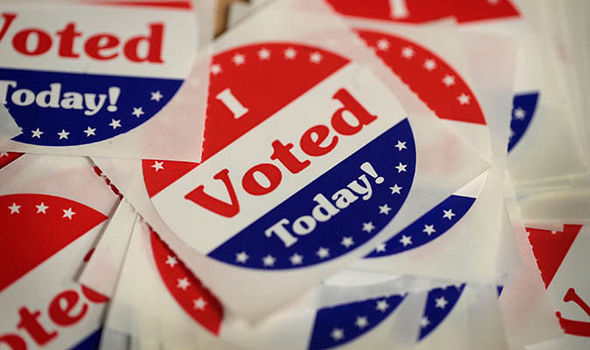About two years ago many young people were upset because they were unable to vote by just a few months. Many of us thought that we weren’t going to make our voices heard until the next presidential election. In doing so, we failed to recognize that we would be able to vote in the midterm election, which is occurring on Nov. 6.
What makes voting in the midterm elections so significant? It determines which party holds the majority of the seats in Congress, which is comprised of the House of Representatives and the Senate. The House of Representatives is comprised of 435 seats and the Senate has 100 seats. Also during the midterm elections 36 U.S. states elect their governors. Many states elect their state legislators, while municipal level elections occur including the election of mayors and other public offices.
What people don’t always realize is that the midterms are extremely significant because Congress is the lawmaking branch of our government. This means that all bills must go through the House and the Senate before it can be approved by the President, so in some ways, midterm elections could be just as important, if not more important, than the presidential election.
According to Scholastic News, each year the House and Senate look at about 10,000 bills, but only about 650 become law. Voting gives citizens the ability to elect for Congress members who share their views and be represented by someone that accomplishes their goals, and in this way have a voice.
The midterm elections take place on Nov. 6. This year there are 100 House seats up for grabs, but since senators serve for six years, there are also 33 seats in the Senate to be voted on this year. While we cannot predict who will gain the majority of the House or the Senate, there are theories as to what could happen if either the Democrats or the Republicans achieve this goal.
If the Democrats do take the majority of the House, it is thought that not much will get done when it comes to legislation due to a divided government. There could be attempts at regulating big business in order to reduce pollution and slow climate change, but those attempts may not make it past the president. Politically, however, a Democratic majority could lead to investigations and impeachment hearings, according to The New York Times.
If Republicans continue to hold majority, we will still be under one-party rule in Washington, and The New York Times predicts that if that were the case, more legislation on deregulation, tax cuts and another attempt to do away with the Affordable Care Act could be in our future.
In order for the Democrats to take the majority of the House, they would have to gain an additional 23 seats. When it comes to the Democrats getting a majority in the Senate, the chances are very slim. Around 10 of the current Democratic Senators are up for re-election this time around, and they are all from states that Trump won in the 2016 election.
Not only are those seats going to be determined this election, but also, according to The New York Times, approximately 6,665 state positions and even more local positions will be determined. In New York State, 27 candidates will be elected to serve in the U.S. House, one for each district.
The candidates running for the House in District 21, which is the local district, are Tedra Cobb (Democrat), Elise Stefanik (Republican) and Lynn Kahn (Green). The candidates running for the Senate have been narrowed down to Chele Chiavacci Farley (Republican) and Kirsten Gillibrand (Democrat). Also, Andrew Cuomo (Democrat), Marc Molinaro (Republican) and Larry Sharpe (Libertarian) are running for New York governor.
What does all this mean and why is it important? The election of the House and Senate seats, as well as the governor, all determine the path in which future legislation and politics will follow.
According to National Public Radio, only about 20 percent of youth and 50 percent of adults that are able to vote end up voting in the midterm elections. This is evidence that each voice matters and has potential for changing the future. All registered voters have the opportunity to become agents of change on Nov. 6, in the midterm elections.



